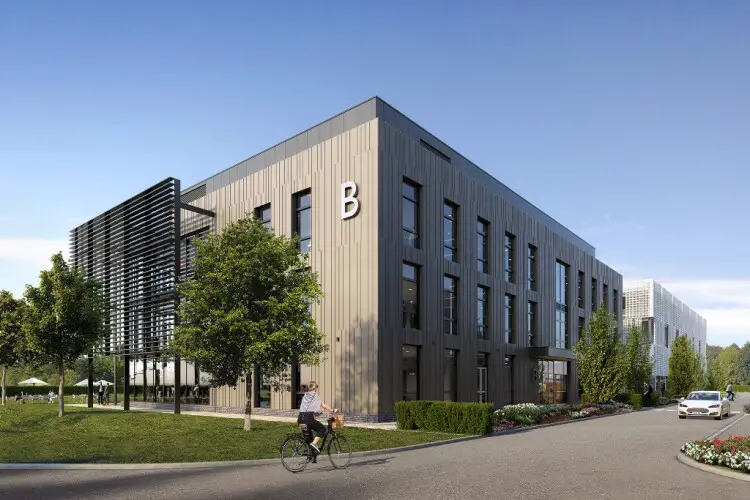A firm has been selected to construct three wet laboratory structures at Unity Campus in Cambridge. Dubbed Morgan Sindall, the firm was appointed by Cambridge property investor Howard Group. This is a new ‘urban innovation district’ eight miles south of Cambridge city centre. Howard Group is revitalizing an abandoned industrial estate at Unity Campus to attract businesses in the life sciences and technology sectors.
The three new wet laboratory buildings totaling 32,500 square feet, 31,000 square feet, and 24,500 square feet are included in phase two of the construction. It is revealed that they will be ready for use in the summer and autumn of 2023. The urban aesthetic of the new structures will be contrasted with a network of interconnected green areas and water meadows, as well as a landscaped courtyard and multipurpose clubhouse, drawing on the industrial heritage of the surrounding communities of Sawston and Pampisford.
Read Also: Hospital Row’s 62-story mixed-use skyscraper for construction in Toronto
Unity Campus project in Cambridge
Phase one of Unity Campus was a 60,000-square-foot flagship laboratory and office facility dubbed The Works. It was also built by Morgan Sindall Construction and is currently occupied by 12 different companies. It is now working on phase two together with Nicholas Hare Architects and 3PM as the project manager. The engineering teams consist of CB3, Conisbee, Shrimplin, and Hoare Lee.
“Phase two is a crucial next step in the execution of Howard Group’s vision for Unity Campus, according to Werner Baumker, director of properties at the Howard Group. We are happy to be making good progress. We are also having a firm delivery date for the upcoming newly built fitted wet laboratory buildings in Cambridge.
“Unity Campus offers an entirely different working environment than other science and research parks in the Cambridge area. This is by fusing the traditional and modern, urban and rural, business and social. Thus, we are giving technology and life science companies seeking laboratories or offices a wider choice of location.
We and our partners are dedicated to providing the space needed. This is to a standard that will leave a lasting legacy. Furthermore, we are significantly improving not only individuals who work at Unity Campus but also the larger community. This is at a time when there is such a clear demand/supply imbalance in Cambridge.”
